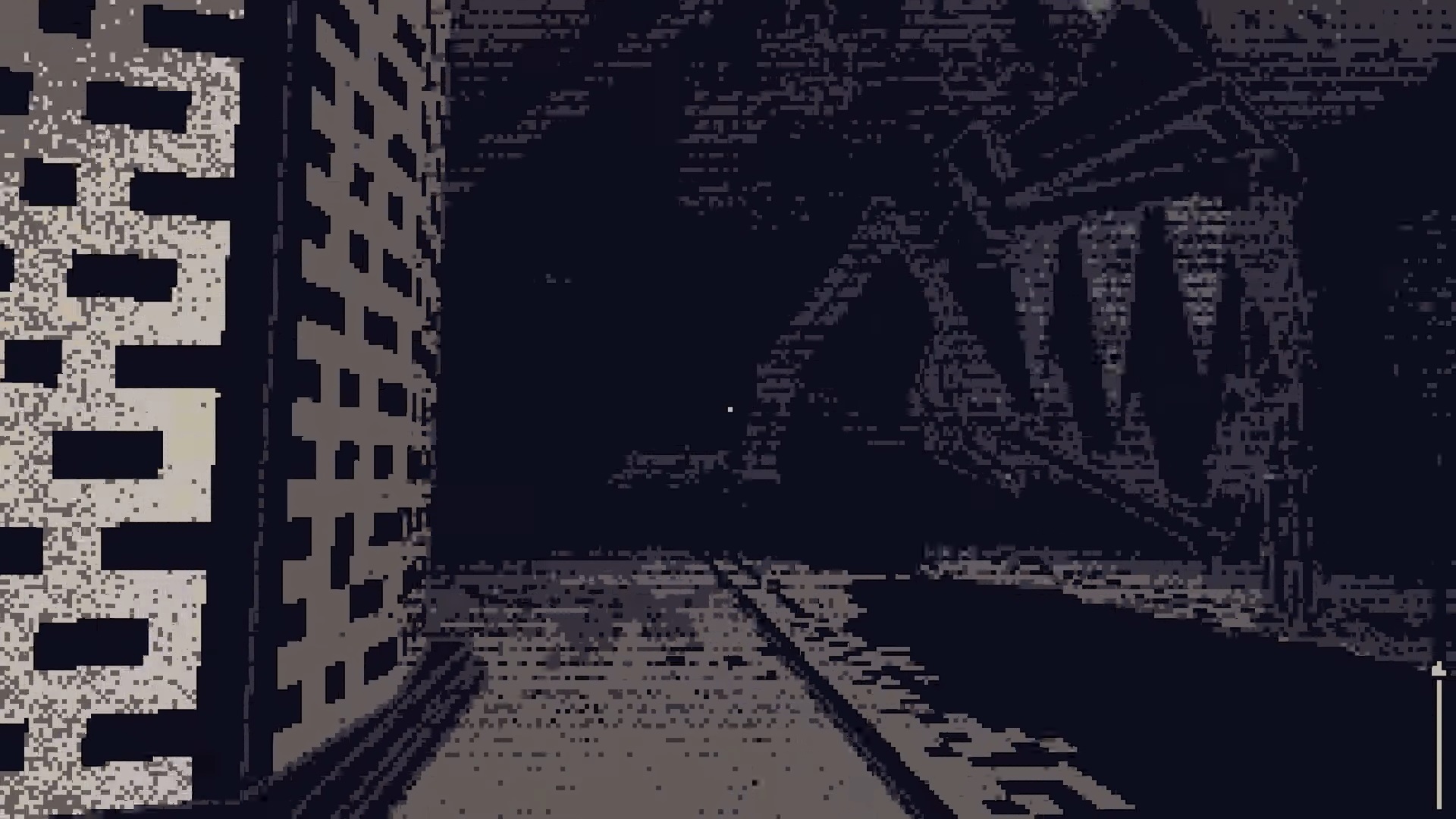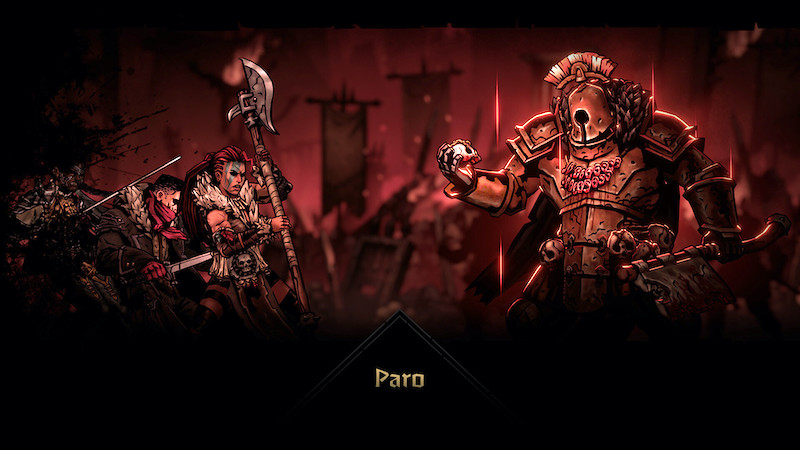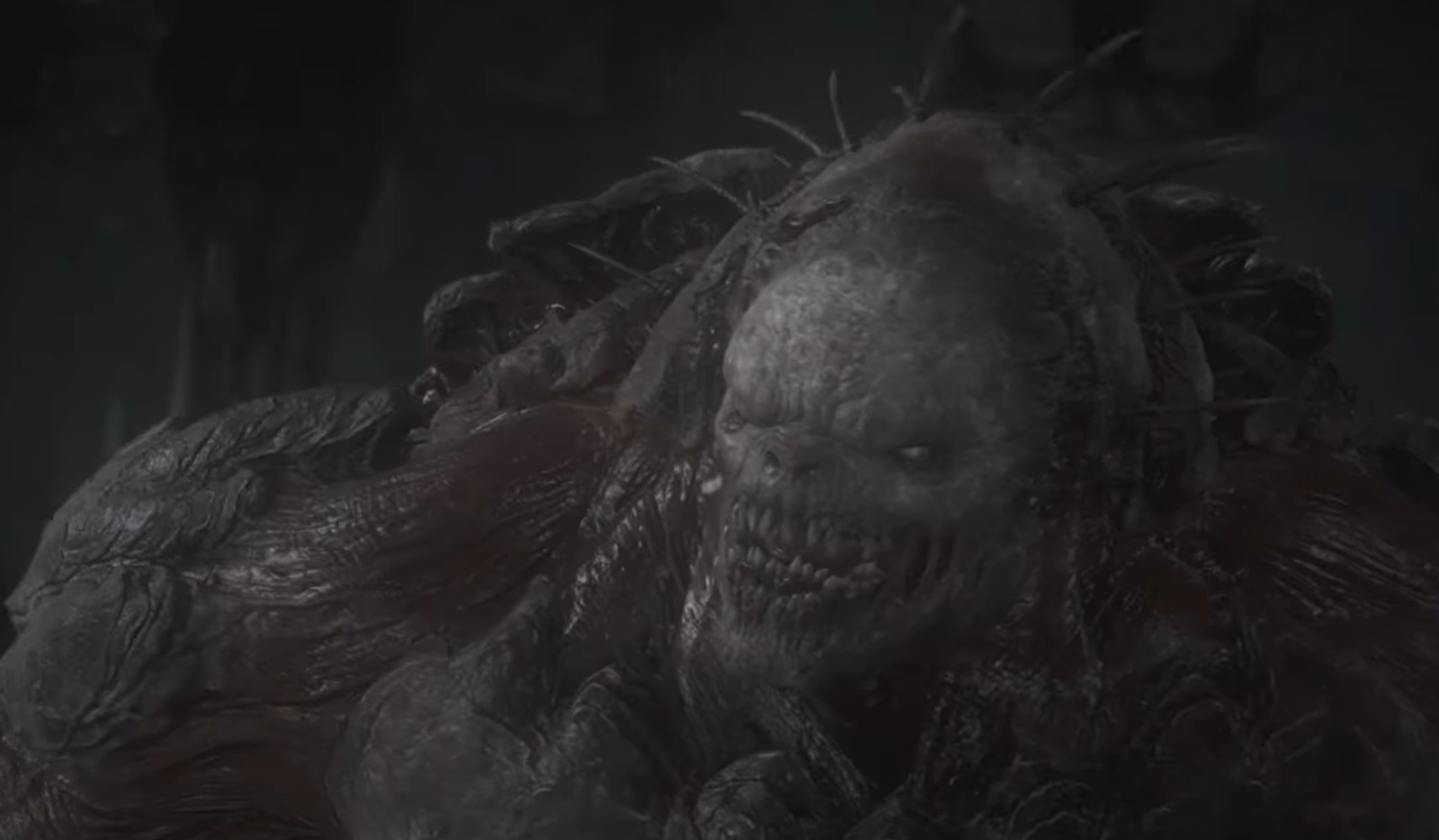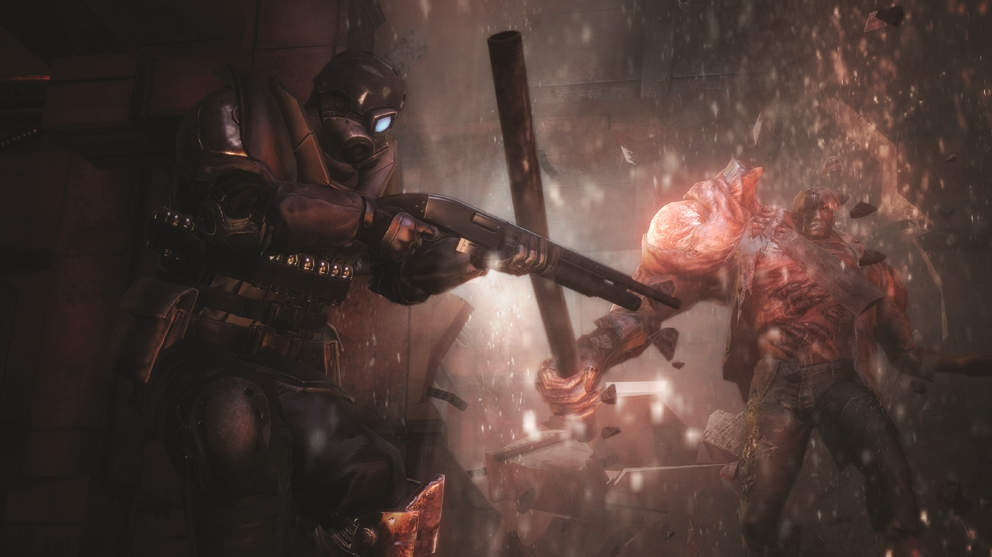
The Wailer Uses Darkness to Create Fear Without Frustration
The Wailer is a fairly straightforward horror game. You’re in a maze. There’s some puzzles. A huge, howling robot skeleton thing is trying to kill you. Can you keep away from the creature long enough to finish the puzzles and get out? What makes the game really compelling is the way it plays around with a common problem in horror games, though: darkness. Being in the dark is great for feeling alone and afraid. Trouble is, you can’t see anything, which tends to make it hard to play a game. This title uses a compelling art style and its mechanics to create a sense of being lost in the dark while still being able to see well enough to play.
Resident Evil: Code Veronica was the first time I got really annoyed at how dark it was in a horror game. While I enjoy the game, there are a lot of locations where you’ll be fighting to see. A lighter isn’t much of a light source, which means you’re going to stumble into a lot of unpleasant creatures. The Resident Evil games are hard enough when you’re able to locate the zombies that want to nibble your neck. I was constantly getting grabbed by undead I couldn’t see. It got to the point where I cranked up the brightness on my TV and didn’t look back.
That’s a shame, because flailing around in the dark while something chases you is very, very scary. However, it tends to infringe on your ability to play the game properly. I can’t fight back or avoid creatures if I can’t figure out where they are. Can’t engage with the mechanics if I can’t see what to use them on. For many horror games, striking up a balance between the two is a vital piece of creating a solid game. You have to be able to see enough that you can play effectively, but you also want that sense of being lost in the shadows. You still want those surprise attacks. Fatal Frame succeeded in this by making you fight ghosts that could hide in walls or become invisible. The Wailer pulls it off with by making things visible despite the perpetual night around you.

When you start the game, you find yourself inside a creepy maze. All of the visuals are in a black and white, 1-bit style. This makes the game look sharp, for starters. Secondly, it uses the color white to convey detail in clever ways. As this is an underground maze, there’s not much light. When you have a light source on hand, you can see the walls, floors, and surroundings filled in with much more color. When you’re in the dark, all you can see is thin white outlines of objects in a sea of black. You can still tell that you’re in a hall or that there’s a turn coming up, but not much else.
This might not sound like much, but it lets The Wailer be tricky with its darkness. When you’re in shadowy surroundings, you can still see a little bit. You can make out the white lines that indicate where the walls are, as well as changes in direction. You get a few details of what’s around you. It’s enough for you to be able to get around without having to constantly flick your torch back on. You only have a little bit of visual information about the environment even though you can technically “see”. You can’t really tell the specifics of what’s around you, which can be a bit unnerving. Especially when you’re looking for something and a monster wants to kill you. But you can see enough to get around. You’re in the dark, but not.
The game needs you to focus on details, though. Some of the puzzles involve finding images on the walls that indicate how to solve a puzzle. As you’re working through a maze, all of the halls can start to feel fairly similar. With the light on, you’re able to see those clues on the way. You can also sometimes see some elements that let you tell the areas apart. Without the light, it’s very easy to feel like everywhere looks the same. You miss all of the clues on the walls. It’s beyond easy to get lost or miss important details with the lights off. You can see enough to get around comfortably, but you still have the repercussions as if you couldn’t see that well. The game is pulling off both things at the same time.

This might not be as impressive without the monstrous antagonist. The Wailer sees you running from a lumbering, roaring beast that fills the halls. This creature will kill you as soon as it touches you. It’s likely going to do just that, seeing as it moves almost as fast as you do. When it catches sight of you, you’ll need to tear down hallways and corridors in order to lose it. You’ll have to skirt around pillars and get around it. This thing will happily trap you in a dead end, though. Make one mistake in your path and you won’t have any way of escaping it.
This monster comes surging out of the shadows if you don’t have a light source nearby or if your torch is off. It simply doesn’t become visible until it’s very close to you when the lights are off. You might be able to hear it, but it still frequently surprised me by coming right out of a pitch-black hallway. On top of this, it’s just got a really imposing design. Huge, lumbering metal skeleton. You can hear it crashing around. It seems to devour the whole screen when it shows up. It feels like it’s always behind you. These latter elements make it into something you absolutely don’t want to run into in the dark. But that’s exactly how you will usually run into it because your torch can only be used for so long before you need to let it recharge.

This makes The Wailer all the scarier because you’ll frequently be running around with the lights off. This means that the monster will usually be right on top of you by the time you see it. Since it’s such an imposing, dangerous thing, you can’t help but be afraid of its presence. You’ll just rarely know that it’s so close until it surges toward you. So, while you still don’t have a lot of clear visual information in the “dark” in the game, you can still get around. And you can still see it when those jaws are about to bite through your body. But it’s still dark enough that these details are obscured. And it’s also light enough that you can see the halls and passageways. You can see the monster as it bears down on you.
The Wailer plays around with darkness so that you can see, but also not see. It uses white lines to give you just enough information about your surroundings. It tells you when the monster is about to devour you whole. But it still keeps enough details hidden that it’s difficult to navigate the maze and solve its puzzles. It’s hard to tell where the monster is until you run into it. Even so, you can always see enough that you can play the game without getting irritated. Also, enough details are obscured that it’s still really scary. It’s an interesting means of solving a common challenge in horror, and shows how smart use of mechanics and visuals can bring about the best parts of meandering through a pitch black maze with few of the gameplay repercussions.




